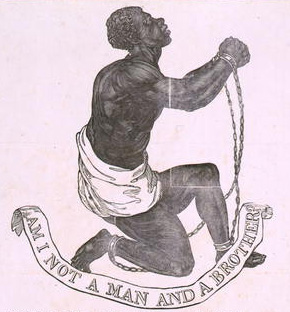As the Second Great Awakening came about, two denominations plucked the most souls from the burning pot of hell (as I’m sure they claimed): the Methodists and Baptists. They were followed, I believe, in a close third by the Presbyterians. All three religions have one thing in common: they were Common. They were for the common person. They destroyed the Puritan idea of predestination and allowed people to use personal conversion to define their own eternities. They also allowed the people of the church to control church affairs in a spinoff of America’s new democracy. Finally, they allowed for emotionalism: a relief after the rigors of the frontier. Most common people enjoyed singing, dancing and immersing themselves in beliefs apart from the rigors of their daily lives. Although these churches may not have permanently converted the outlandish Backwoodsmen they did boost church membership and trigger major humanitarian reforms… However, they soon all came to grief. And once the churches came to grief, the nation was not slow to follow.

The split of these three denominations can easily be combined into one essay, because they all occurred for the same basic reason. When the churches of the Second Great Awakening faced up to the slavery issue, most of them didn’t come out of it all together. By 1845, the southern Baptists and Methodists had split North and South. In 1857 the Presbyterians split North and South.
The basic problem was that Southerners did not consider slavery a sin, whereas the northerners could only quote Jesus’ as commanding us to treat all people with equal love and respect. Thus the civil war begins, a decade before the first shot is fired.

Most denominations tried to stifle the issue before letting it explode. In 1840, however, the Baptists could stand it no longer and an American Baptist Anti-Slavery Convention was held and eventually formed a Baptist Free Mission Society and would not accept Southern money or Southern people. So, the Southern members withdraw and form their own Southern Baptist Convention. Grief came for the Methodists in the form of Bishop J.O. Andrew of Georgia, whose second wife brought with her slaves to his household where previously there had been none. When word reached the General Conference of North Carolina, they came out with this resolution:
"We believe, an immediate division of the Methodist Episcopal Church is indispensable to the peace, prosperity, and honor of the Southern portion thereof, if not essential to her continued existence…we regard the officious, and unwarranted interference of the Northern portion of the Church with the subject of slavery alone, a sufficient cause for a division of our Church."
The Presbyterians were simply a split over a matter of time as they were caught up in the battles of the Methodists and Baptists. After the first great Schism from 1741-1758, they split a final time in 1857 and did not rejoin again until 1983…
The Second Great Awakening had one huge affect upon religions: it split them. Almost every major denomination was split on the issue of slavery. And it is safe to say, I think, that the issue of abolition would not have occurred had it not been for the reformist attitude brought about by the Second Great Awakening.